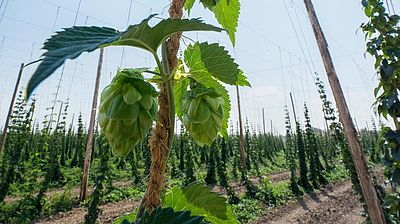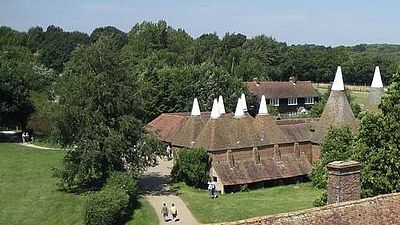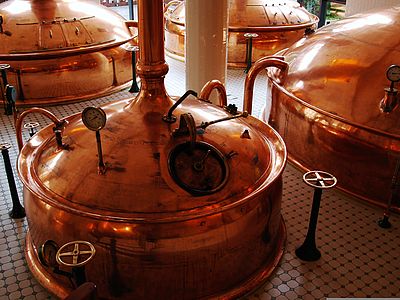son avenir
Faculté des Langues,
Cultures et Sociétés
“Beer territories”: tourism promotion and sustainable development
International Conference, SEPTEMBER 15 – 16, 2023



PROGRAM (to download) / PROGRAMME (à télécharger)
This international and interdisciplinary conference organized by the University of Lille, in partnership with the University of Littoral Côte d'Opale, InREnT and the Échappée Bière association, aims to bring together academics from different fields as well as professionals and players from the tourism and brewing sectors.
“Beer territories”: tourism promotion and sustainable development
Discovering culinary traditions and tasting emblematic dishes or local drink are, for many tourists, part of the key elements experienced when discovering a new destination. In recent years, a large number of tourist destinations have chosen, in order to differentiate themselves, to put forward their territories through the promotion of their attractive tangible and intangible cultural heritage. It is in this context that beer territories and their associated agricultural and brewing productions provide many tangible and intangible heritage elements that are likely to be the markers of a territory, and whose exploitation makes it possible to develop a specific tourist attractiveness.
The brewing sector is a fragmented sector, where industrial and artisanal producers coexist. This fragmentation leads to two kinds of brewing tourism: industrial tourism (i.e. visiting industrial breweries, such as Heineken in Amsterdam or Guiness in Dublin), and local tourism based on the exploitation of local resources as remnants of a surviving tradition. Industrial tourism means tourism based on disccovering mass production methods, while regional tourism brings together resources and practices likely to give tourists the idea of a local spirit.
The increasing number of small producers (craft breweries, microbreweries), the close relationship between craft production methods and the quality they allow, the combined sustainable use of resources born of a territory with an eco-responsible production all favour the anchoring of the brewing activity in dedicated territories. These three elements give territories labelled as “beer territories” new opportunities to differentiate themselves and to develop their tourist attractiveness.
Over the past few years, the brewing industry’s players have come together with tourism professionals, institutions and local authorities in order to work on the development of a tourism offer based on beer. This offer, which until recently was limited to visiting breweries or micro-breweries, has now been greatly expanded. Tourists can now experience a variety of beer-themed visits, ranging from beer-themed circuits, to making beer and taking part in beer-themed festivities or festivals.
A labelling procedure, known as “Heritage beer” which is the first brewing tourism label, has also been introduced.
Taking this into account, the objective of this international conference will be to study the best ways to further integrate the brewing activity into the tourism identity of a territory.
We invite papers on topics including, but not limited to:
Topic 1. “Beer territories” and their definition, stakeholders and future
- How to define a region as a “beer territory” other than by using the location of beer producers? Which criteria (historical, geographical, socio-economic, cultural, industrial, etc.) should grant a « beer territory » label and provide benchmarks for tourist circuits?
In this attempt to define a region, what are the solutions implemented by foreign territories (European or outside Europe) in terms of beer-induced tourism?
- How is the beer-tourism offer structured? What are the differentiation strategies implemented by professionals?
Can professionals use agriculture as a differentiating factor (through the development of many offers integrating a farming component such as walking a hop trail with stops to hop fields, visiting brewery farms, etc.)?
What could be the place and the part played by a structuring facility like a beer city (currently a project for the Hauts-de-France region)?
- who are the actors and stakeholders currently involved or who should be involved in building and developing tourism in “beer territories”?
How can players from the brewing and tourism sectors better combine their resources so as to increase the tourist attractiveness of “beer territories”?
- How does a territory become a “beer territory”?
Can brand, label, protected designation of origin, geographical designation of origin, digital tools and social networks be used to reach that specific goal?
Can the experience of wine tourism serve as an example to benefit from?
Topic 2. Tourist attractiveness and the brewing offer
- On which ecosystem and governance should the brewing offer be based in order to optimize its tourist attractiveness?
- How to stage the brewing offer so as to maximize its tourist appeal?Tourists as co-producer and co-creator of their beer tourism journey; Tourists as occasional brewers
- How to build a tourist destination based beer?
Can the arts (such as painting with for example Pieter Bruegel and his sons, literature with scenes of taverns, pubs, and folklore through popular songs, various beer festivals, etc.) encourage tourists to visit beer production and tasting facilities, or even to follow a beer trail, thus contributing to the development of beer-induced tourism in a territory?
- How is it possible to diversify the brewing offer through its association with other local offers whose properties or qualities reinforce a territory’s tourist attractiveness?
- How can services associated with the brewing offer be used as elements of tourist attractiveness?
Tourism and the art of tasting beer
Topic 3. The beer industry and tourism : fostering sustainable development and circular economy.
- Beer production processes can have harmful effects on the environment such as pollution and degradation (through the pollution of soils, water, air), greenhouse gas emissions, waste production, excessive use of water and energy. The brewing sector now tends to adopt a production approach based on a sustainable development and circular economy. This production approach relies on three pillars, i.e. proximity, circularity and the preservation of resources.
Which approach based on these three pillars can the brewing sector and beer-induced tourism implement in order to strengthen their commitment to sustainable development and a circular economy?
Does the offer developed by the French micro-breweries (based on the local consumption of local produce) represent the answer to the issue of sustainable development (thereby limiting shipments and packaging)?
How to develop the recycling of by-products and waste from the brewing sector?
Can the brewing industry benefit from a bottle deposit return scheme?
- How can brewers ensure that this example of sustainable development becomes an element of tourist attractiveness? What tools can they use across the entire value chain?
- How can brewers influence the behavior of tourists by introducing them to practices related to sustainable development and the circular economy implemented in their structure?
This international conference will be an opportunity for cross-disciplinary research on beer. The studied issues can overlap the fields of sociology, ethnology, literature, marketing, strategy, economy, history, geography, law, sustainable development, etc...
This conference will preferably be an in-person event taking place at the University of Lille, France (at the Faculty of Languages, Cultures and Societies located in Roubaix), or a virtual one on a case-by-case basis.
Proposals (about 400 words) written in French or in English, together with 3 to 5 keywords and a short biography, should be sent by e-mail no later than July 31, 2023 to both organizers (nathalie.dupont @univ-littoral.fr and laetitia.garcia@univ-lille.fr). Call for paper proposals : en français, in english.
Selected papers will then be peer-reviewed for publication after the conference.
Pour assister (gratuitement) au colloque (en présentiel ou distanciel), inscription jusqu'au 13 septembre 2023, par courriel aux adresses: laetitia.garcia@univ-lille.fr et nathalie.dupont@univ-littoral.fr, en indiquant votre nom/prénom, votre fonction et vos coordonnées.
Pour se rendre sur le site du colloque (faculté LCS, département LEA, Roubaix):
- MÉTRO: Ligne 2 - direction C.H. Dron Toucoing - sortie Gare Jean Lebas Roubaix
- TER: depuis la gare Lille Flandres. Train Lille - Roubaix (durée environ 10 minutes)
Scientific Committee :
• Delphine Chambolle (Université de Lille)
• Nathalie Dupont (Université du Littoral Côte d'Opale)
• Michel Félix (SKEMA Business School)
• Laetitia Garcia (Université de Lille)
• Vincent Herbert (Université du Littoral Côte d'Opale)
• Marie-Agnès Lanneaux (Université de Lille)
• Nicolas Lescieux (Échappée Bière)
• Philippe Vaesken (Université de Lille)
• Philippe Vervaecke (Université de Lille)
Hôtel BRUEGHEL : 5 Parvis St Maurice Lille (0320060669)
Hôtel St Maurice : 8 Parvis St Maurice Lille (0320062740)
Hôtel de la Paix : 46 Bis Rue Pierre Mauroy Lille (0320546393)